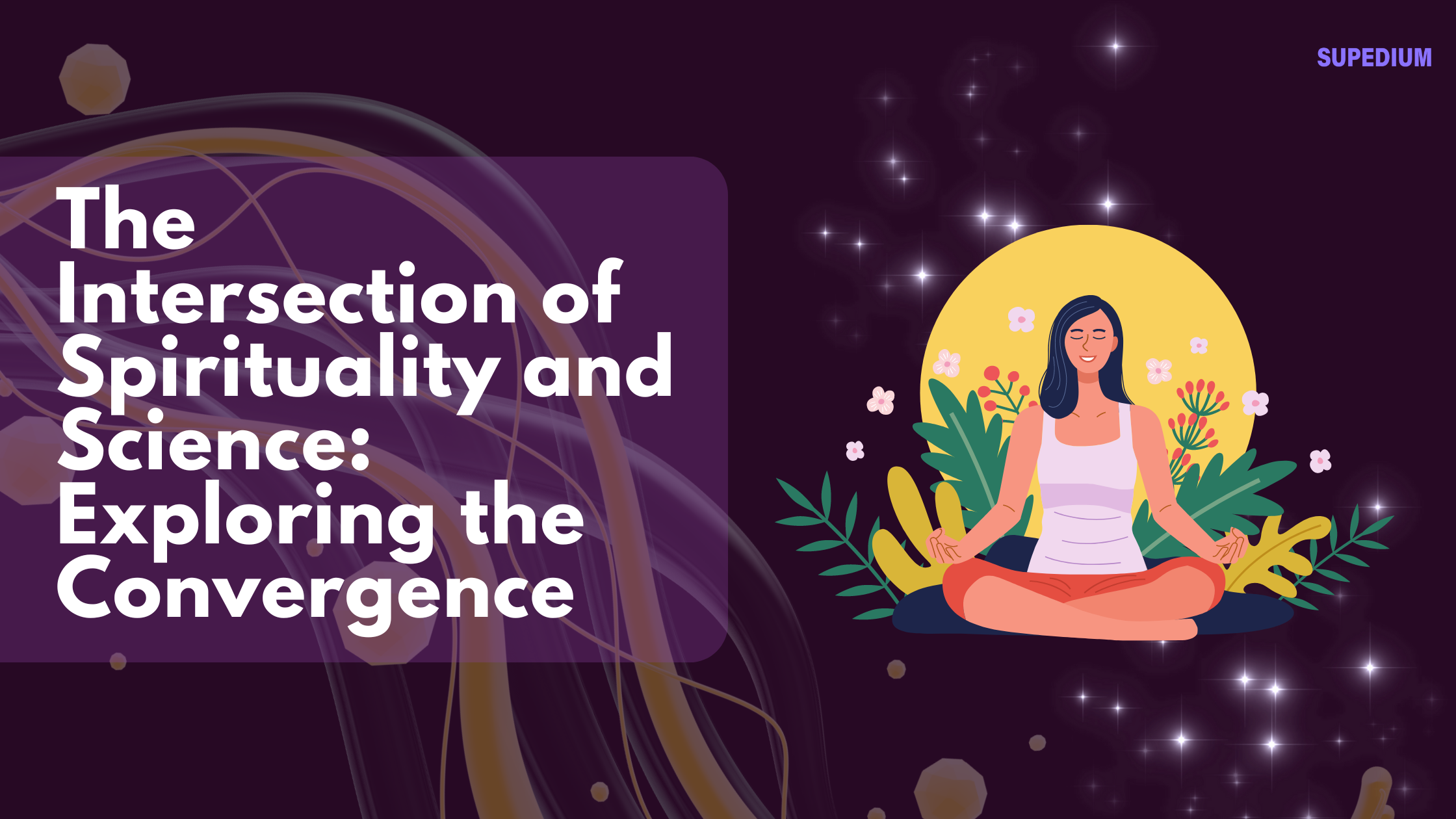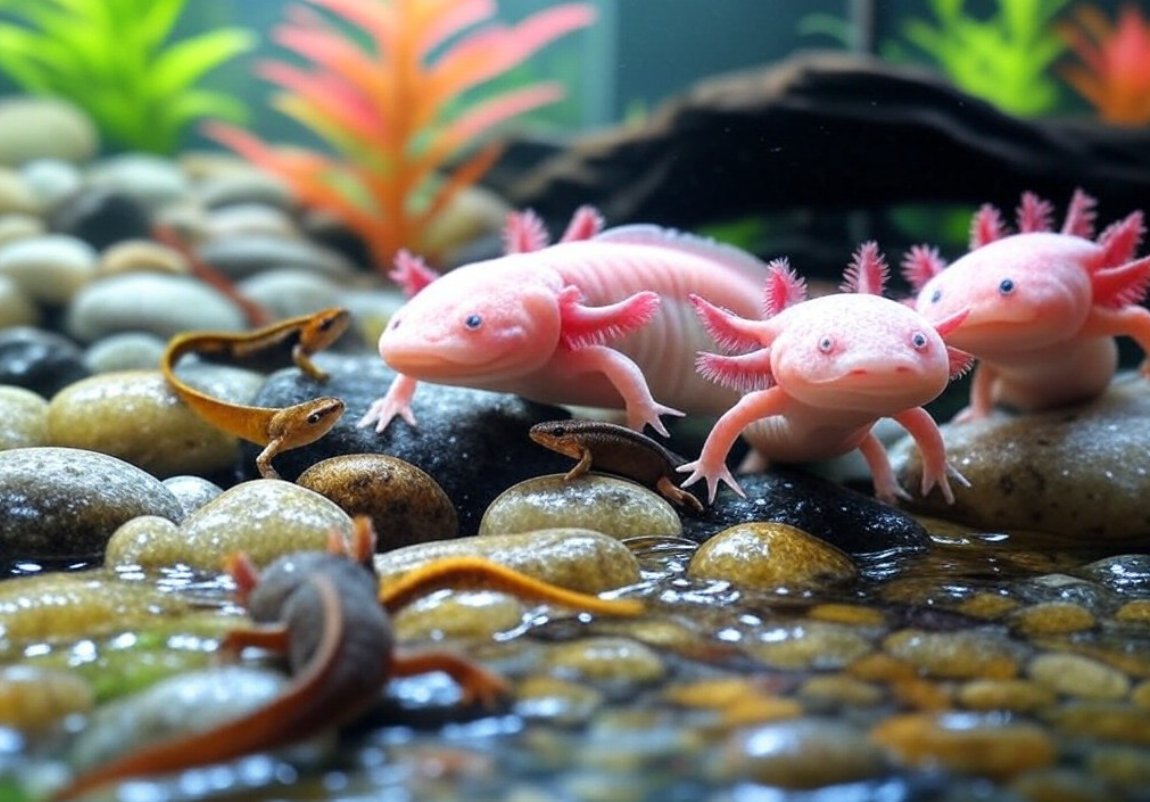Table of Contents
![]()
The intersection of spirituality and science is a rich and multifaceted area of study that delves into the relationship between the mystical and the empirical. This exploration uncovers how these seemingly disparate domains of human experience and knowledge interact, challenge, and sometimes complement each other. Understanding this intersection requires a deep dive into historical perspectives, philosophical considerations, scientific investigations, and spiritual insights.
Historical Perspectives
Ancient Views
Historically, spirituality and science were not seen as separate entities but as intertwined aspects of human understanding. Ancient civilizations often explained natural phenomena through spiritual or religious narratives. For instance, early cosmologies such as those found in Greek, Hindu, and Egyptian traditions integrated both mythological explanations and observations of the natural world.
Enlightenment and Modern Science
The Enlightenment marked a significant shift towards empirical methods and the scientific approach. Thinkers like Isaac Newton and Galileo Galilei laid the groundwork for modern science by emphasizing observation and experimentation over spiritual or religious explanations. This period saw a growing tension between scientific inquiry and spiritual beliefs, as the former began to challenge traditional religious doctrines.
20th and 21st Century Developments
In the 20th century, interdisciplinary studies began to emerge, seeking to bridge the gap between science and spirituality. Notable figures such as Carl Jung explored the psychological dimensions of spirituality, while Albert Einstein’s reflections on the universe hinted at a sense of awe akin to spiritual wonder. These developments set the stage for contemporary dialogues that seek to reconcile scientific and spiritual perspectives.
Philosophical Considerations
Epistemological Issues
The ways in which we come to know and understand the world are central to the debate between science and spirituality. Science relies on empirical evidence and the scientific method, while spirituality often draws on personal experiences and inner insights. This divergence raises questions about the limits of scientific explanation and the scope of spiritual understanding. Can empirical methods capture the full breadth of human experience, or is there knowledge that lies beyond scientific reach?
Ontological Questions
Ontology, or the study of the nature of being and reality, is another area where science and spirituality intersect. Science typically approaches reality through observable phenomena and testable theories, while spirituality often involves concepts of consciousness and existence that are less tangible. For instance, the nature of consciousness remains a profound mystery for both scientific and spiritual traditions, leading to debates about whether consciousness can be fully explained by neuroscience or if it encompasses a deeper, spiritual dimension.
Ethical and Existential Implications
The ethical and existential questions arising from the intersection of spirituality and science are also significant. Spiritual and scientific perspectives can influence our understanding of morality, purpose, and the meaning of life. For example, spiritual teachings may offer frameworks for ethical behavior and personal fulfillment, while scientific findings can inform our understanding of human nature and societal needs.
Scientific Exploration of Spiritual Concepts
Consciousness and the Mind-Body Problem
One of the most intriguing areas of research is the study of consciousness. Scientific approaches, including neurobiology and cognitive science, investigate how brain activity correlates with conscious experience. Meanwhile, spiritual perspectives on consciousness often explore mystical experiences and altered states. The mind-body problem remains a central issue, with ongoing research attempting to uncover how subjective experiences relate to objective brain processes.
Health and Well-being
Research into the health benefits of spiritual practices such as meditation and prayer has gained prominence. Studies have shown that these practices can have positive effects on mental and physical health, including reduced stress and improved emotional well-being. The placebo effect, a psychological phenomenon where a person experiences real changes in health due to their beliefs, also highlights the complex interplay between mind and body.
Cosmology and Creation
The scientific theory of the Big Bang provides a model for the origin of the universe, while spiritual creation narratives offer alternative explanations. The fine-tuning of the universe, which refers to the precise conditions necessary for life, has sparked discussions about whether this could be evidence of a purposeful design or simply a natural occurrence. These debates illustrate the diverse ways in which science and spirituality address the question of creation and existence.
Spiritual Perspectives on Science
Theological Interpretations of Scientific Findings
Different religious traditions interpret scientific discoveries in various ways. For instance, some view the theory of evolution as compatible with spiritual beliefs about the development of life, while others see it as conflicting with literal interpretations of sacred texts. Integrating science and spirituality within religious traditions involves reconciling empirical evidence with theological concepts.
New Age and Syncretic Approaches
The New Age movement and other syncretic approaches often blend scientific ideas with spiritual beliefs. Concepts such as the Gaia theory, which views the Earth as a living organism, and quantum spirituality, which applies quantum mechanics to spiritual ideas, reflect efforts to create a holistic understanding that incorporates both scientific and spiritual perspectives.
The Role of Mysticism
Mysticism, with its emphasis on direct personal experience of the divine or the ultimate reality, offers another lens through which to explore the intersection of science and spirituality. Mystical experiences, which can include altered states of consciousness, are sometimes seen as compatible with scientific discoveries about the brain and consciousness, suggesting that spiritual insights and scientific knowledge may be more closely related than traditionally thought.
Case Studies
Meditation and Neuroscience
Research into meditation has provided valuable insights into its effects on the brain. Studies using neuroimaging techniques have shown that meditation can alter brain structure and function, enhancing areas associated with attention, emotional regulation, and self-awareness. These findings support the idea that meditation has measurable effects on mental health and cognitive function.
Quantum Mechanics and Spirituality
Quantum mechanics, a fundamental theory in physics, is often cited in spiritual discussions. Some interpretations of quantum phenomena, such as entanglement and uncertainty, are seen as supporting spiritual concepts of interconnectedness and non-material reality. However, it is essential to differentiate between scientific theories and their speculative or metaphorical applications in spiritual contexts.
Near-Death Experiences (NDEs)
Near-death experiences, characterized by profound experiences reported by individuals who have been close to death, are a topic of interest both scientifically and spiritually. Scientific investigations seek to understand the physiological and psychological factors behind NDEs, while spiritual interpretations often view them as evidence of an afterlife or spiritual realms. The ongoing study of NDEs continues to explore the boundaries between scientific explanation and spiritual meaning.
Contemporary Dialogue and Future Directions
Interdisciplinary Research
The growing field of interdisciplinary research seeks to bridge the gap between science and spirituality. Areas such as psychoneuroimmunology, which explores the interactions between psychological processes, the nervous system, and the immune system, and transpersonal psychology, which incorporates spiritual and transcendent experiences, are examples of how these domains are being integrated.
Public Perceptions and Misconceptions
Public understanding of the intersection between science and spirituality is often shaped by media portrayals and popular misconceptions. Addressing these misconceptions and fostering accurate, nuanced discussions can help improve public knowledge and appreciation of the complexities involved.
Future Possibilities
Looking ahead, the intersection of science and spirituality holds promising potential for new discoveries and insights. Emerging technologies, such as advanced neuroimaging and artificial intelligence, may offer new ways to explore and understand the relationship between these fields. Continued dialogue and research are essential for deepening our understanding and addressing the profound questions that lie at this intersection.
Conclusion
The intersection of spirituality and science offers a compelling and multifaceted exploration of human knowledge and experience. By examining historical perspectives, philosophical issues, scientific research, and spiritual insights, we gain a deeper understanding of how these domains interact and influence each other. As we continue to explore this intersection, we open the door to new possibilities for understanding the nature of reality, consciousness, and the human experience. Through ongoing inquiry and open-minded dialogue, we can better appreciate the rich and complex relationship between spirituality and science.
Share This





Be the first to comment